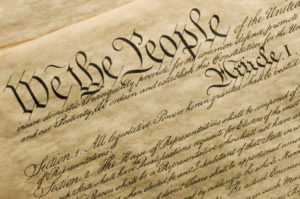This month we travel east to the state of Delaware, the first State. It is nicknamed the first state because it was the first state to ratify the U.S. Constitution.
Delaware occupies the northeastern portion of the Delmarva Peninsula and some islands and territory within the Delaware River. It is the second-smallest and sixth least populous state, but also the sixth-most densely populated. The state is divided into three counties, having the lowest number of any state (unless one counts Louisiana and Alaska, which do not have counties, but parishes and boroughs respectively). This state can be seen as a hidden gem; being surrounded and overshadowed by its neighboring states, Pennsylvania, Maryland, and New Jersey.
Business Climate
More than half of all U.S. publicly traded companies, and 63% of the Fortune 500 companies, are incorporated in Delaware. The state’s attractiveness as a corporate haven is largely because of its business-friendly corporation law. The state has more than a million registered corporations, meaning there are more corporations than people.
While the northermost county is urbanized, the southern two counties have historically been known for agricultural use. Delaware’s agricultural output consists of poultry, nursery stock, soybeans, dairy products and corn.
Tax Climate
Delaware administers a franchise tax and is the fee imposed by the state for the right or privilege to own a Delaware company. The tax has no bearing on income or company activity; it is simply required by the state of Delaware to maintain the good standing of the company. The term “Franchise Tax” does not imply that the company is a franchise business. All companies pay a Delaware Franchise Tax, regardless of their business income, business model or company structure. The Delaware Franchise Tax for a corporation is based on a corporation’s type and the number of authorized shares the company has. A non-stock/non-profit company is considered exempt. The tax by a Delaware LLC or a Delaware LP is an annual flat rate of $300.
Income Tax Structure
The top corporate income tax rate is 8.7%.
Apportionment for income tax: Delaware taxpayers apportion income tax using a sales formula only.
Sourcing of intangibles for income tax: In Delaware, receipts from Services are sourced based on the place the services are performed.
Also, the top individual income tax rate is 6.6%.
Sales Tax Structure
Delaware is one of five states that does not have a state sales tax. (The others are AK, NH, OR and MT.)
Our team at Miles Consulting Group is always available to discuss the specifics of your situation, whether in Delaware or other U.S. States, and help you navigate the complex tax structures arising from multistate operations. Call us to help you achieve the best tax efficiencies.
Random Facts
- Delaware was the first state to ratify the federal Constitution — December 7, 1787, becoming the first state in the Union.
- Delaware has a small population, ranking 45th among the states, but an even smaller land size, coming in at 49th.
- Delaware is the only state without any National Park System units such as national parks, seashores, historic sites, battlefields, memorials, and monuments.
- Delaware is the lowest state with an average altitude of 60 feet above sea level. Its highest point near the Pennsylvania border is only 442 feet above sea level.
- According to Legend, Thomas Jefferson called Delaware a “jewel” among states because of its strategic location along the east coast.
- Sussex county raises more broiler chickens than any other county in the United States. It is home to the headquarters of 3 of the top 20 broiler-producing companies in the country.
- Delaware Bay is home to the largest population of horseshoe crabs in the world.
- Pea Patch Island in Delaware was named when a ship carrying peas ran aground and lost its cargo, which sprouted new pea plants.




















